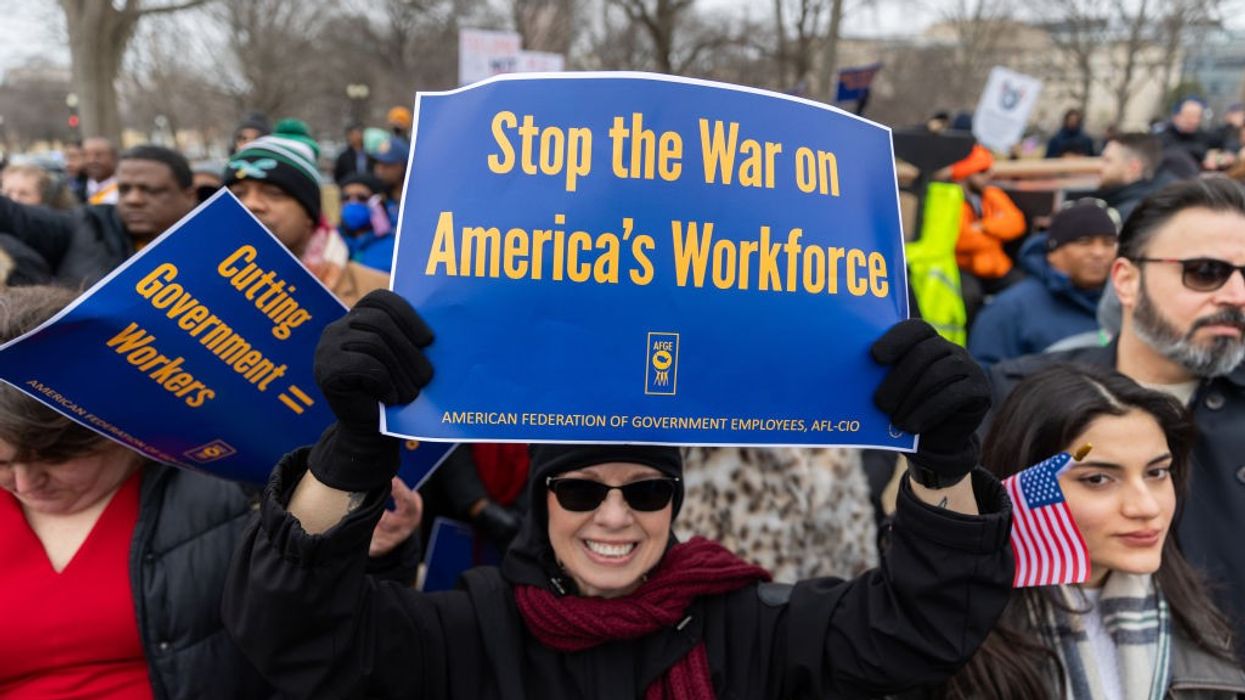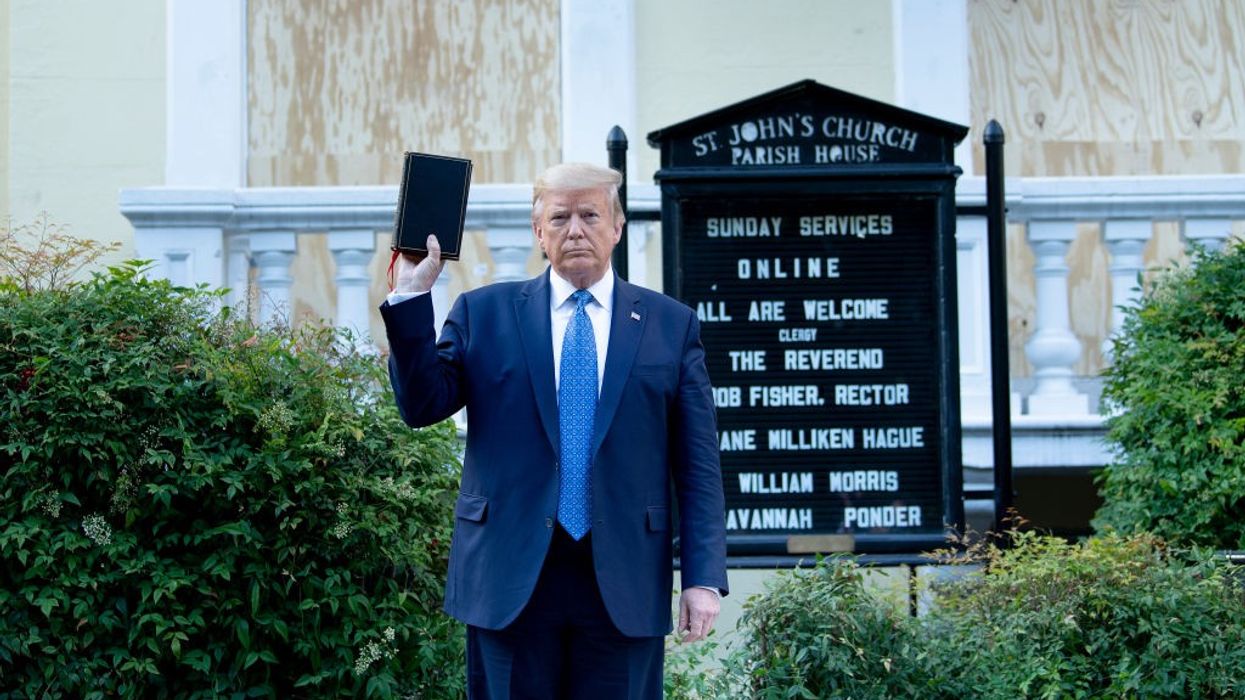The policy, known as Schedule F, was first proposed by President Donald Trump during his first term, which expired before he could fully implement it. Former President Joe Biden rescinded the policy, but Trump revived it on his first day back in office in January 2025, despite warnings from experts who say it is illegal.
Schedule F is one of the policies recommended in Project 2025, the far-right initiative to boost the power of the presidency and purge the federal civil service.
OPM estimates that around 2% of the federal workforce, or approximately 50,000 employees, will be affected by the rule change, which the agency said is aimed at "strengthening accountability, improving performance, and reinforcing a merit-based federal workforce."
Scott Kupor, who heads the OPM, said in a statement that the rule change “restores a basic principle of democratic governance: Those entrusted with shaping and executing policy must be accountable for results.”
“This rule preserves merit-based hiring, veterans’ preference, and whistle-blower protections while ensuring senior career officials responsible for advancing President Trump’s agenda can be held to the same performance expectations that exist throughout much of the American work force," he added.
However, critics are sounding the alarm over parts of the new policy, including a provision allowing agencies to fire employees who "obstruct the democratic process by intentionally subverting presidential directives."
“This rule is a direct assault on a professional, nonpartisan, merit-based civil service and the government services the American people rely on every day,” American Federation of Government Employees (AFGE) national president Everett Kelley said in a statement.
“When people see turmoil and controversy in Washington, they don’t ask for more politics in government, they ask for competence and professionalism," Kelley continued. "OPM is doing the opposite. They’re rebranding career public servants as ‘policy’ employees, silencing whistleblowers, and replacing competent professionals with political flunkies without any neutral, independent protections against politicization and arbitrary abuse of power.”
“A professional civil service means nurses and doctors can advocate for patient safety, inspectors can report violations, cybersecurity experts can warn about threats, and benefits specialists can tell the truth about what it takes to deliver services—without worrying they’ll be punished for it,” Kelley argued.
“Turning tens or maybe hundreds thousands of these professionals into at-will employees doesn’t make government more accountable," he added. "It makes it more vulnerable to pressure, retaliation, and political interference, which is exactly the opposite of what the public is asking for right now.”
Democracy Forward, which represents AFGE and another public sector union in a lawsuit challenging Trump's revival of Schedule F, said in a statement Thursday, "The final rule continues to weaken more than a century of bipartisan civil service protections by allowing the administration to remove experienced, nonpolitical federal employees at will while stripping away civil service protections, meaningful oversight, and appeal rights."
"Existing law already provides mechanisms to address employee misconduct," the group added. "This rule is not about accountability, but about politicization."
Democracy Forward president and CEO Skye Perryman said that "this proposal was wrong when it was outlined in Project 2025, wrong when the president issued an executive order, and it remains wrong now... This is a deliberate attempt to do through regulation what the law does not allow—strip public servants of their rights and make it easier to fire them for political reasons and harm the American people through doing so."
"We have successfully fought this kind of power grab before, and we will fight this again," Perryman vowed. "We will return to court to stop this unlawful rule and will use every legal tool available to hold this administration accountable to the people.”
On the legislative front, US Sen. Tim Kaine (D-Va.) and the late Rep. Gerald Connolly (D-Va.) last year reintroduced the Save the Civil Service Act, which aims "to protect the federal workforce from politicization and political manipulation."
“The civil servants who make up our federal workforce are the engine that keeps our federal government running,” Connolly, who died last May of cancer, said at the time. “They are our country’s greatest asset. We rely on their experience and expertise to provide every basic government service—from delivering the mail to helping families in the wake of natural disasters."
Connolly added that Trump's push to "remove qualified experts and replace them with political loyalists is a direct threat to our national security and our government’s ability to function the way the American people expect it to."
"It threatens to create a system wherein benefits and services are delivered based on the politics, not the needs, of the recipient," he added. "Expertise, not political fealty, must define our civil service.”



